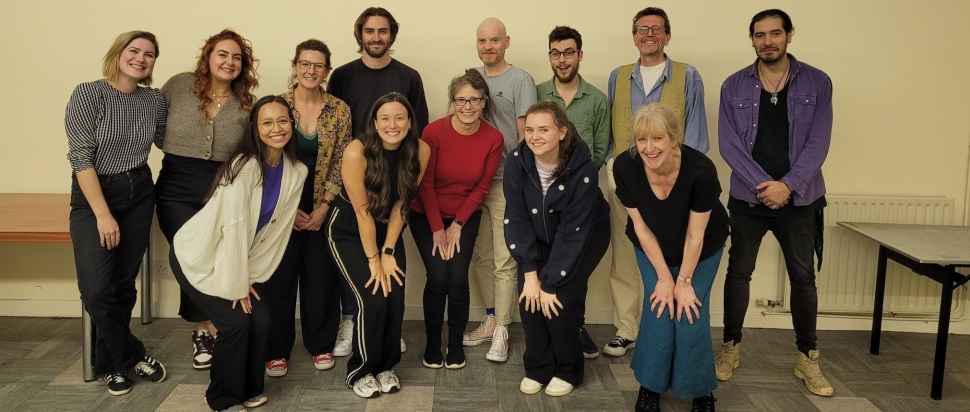Inside the Scottish Casting Network
A new series of casting workshops hopes to connect more actors with casting directors and theatre companies
On 18 March, Glasgow's Tron Theatre will host the initial workshop of the Scottish Casting Network. The network, comprised of the Tron, the Traverse, Dundee Rep, Citizens, Royal Lyceum, and Pitlochry Festival Theatres, was formed based on the Scottish Casting Workshops, a series of open-call workshops to connect Scotland-based artists with companies and casting directors. The workshops were created by actor Neil John Gibson.
Gibson highlights the benefit of this new iteration of the series: "The Scottish Casting Network will mean that the workshops are not reliant on one person running the event. Each building has agreed to hold their own workshop every two years regardless of staff changes. This way, actors will know that there will be three workshops held every year in perpetuity." The interesting thing about the series, for me, is this building-centred approach. Putting the onus of keeping the workshops going on the buildings themselves means a commitment from theatre companies with the most resources – that is, a physical building – to hold a workshop every two years. At the moment, Tron Theatre Artistic Director Jemima Levick says that the workshops are being mostly funded by the companies themselves.
It's a simple concept rooted in material conditions. This concerted effort by Scotland's largest theatre companies to "see more talent", so to speak, is a small step toward mitigating the effects of an environment that is starkly hostile toward working class, racialised and marginalised artists.
"It's an opportunity for actors to come into the building and for a space within our building to become theirs for a few sessions," Levick explains. "It's not 'run' by us. We're hosting it. Usually, when you're auditioning, you're inviting somebody into your building and you're going, 'This is the play that we're gonna do, and this is the director… and this is their vision.' Whereas the Scottish Casting Network Workshops are much more open, and much more, like, 'You come in, you do your thing. Let us see what you've got, and then that might set some ideas running, or inspire us to think differently.'"
On the casting side, the workshop leaders plan to invite casting agents, directors and professionals from all over Scotland, not just from their venues. Levick continues: "The building-based companies are producing the most amount of work, and on a very practical level, we literally have a building that we can host this in. We have the infrastructure... We can make space for this."
Of course, the series has limitations. A coalition amongst large companies stands to improve the Scottish casting landscape, but it also provides possible cover for the industry's biggest players to close ranks against anyone with less influence. It's fantastic that large companies – which themselves have faced precarity in recent years – want to share what they have; nevertheless, these gifts are given on their terms. And it's important that these companies see a return on their investment.
As an artistic director, Levick walks a fine line between her roles as an employer and as an artist. The vast majority of auditions aren't paid; that means that the preparation that the actor does and the time they spend in the audition room are unpaid hours of work. However, Levick highlights the value of spending company budget on casting, even if the funding to pay actors to go through casting processes isn't yet there. Levick reports that, in the past, these workshops have been hugely beneficial for company casting pools. "There are always people who slip through the net that you see in these workshops and you go, 'Oh, God, they're really amazing. Where have they been?'"
To me, these workshops are generally good news. The Scottish Casting Network is a direct response to the demonstration by the Scottish Government that funding for the arts can be gutted at any time, at any scale. If the government won't provide a safety net for artists, then it's up to arts employers.
An open-call workshop functions a bit like a stand-in for the famously exclusive drama school showcase, in which casting directors and other industry professionals come to see a curated exposition of work by the few artists with access to those institutions. In the Scottish Casting Network workshops, any artist can attend, regardless of their experience, access to education, and so on. As for the overall impact of the Scottish Casting Network on our theatre ecosystem, we'll have to wait and see. Literally. Go see live theatre. Please.
Scottish Casting Network’s next session is at Tron Theatre, Glasgow, 18 Mar; more info at tron.co.uk/creative/scottish-casting-network
